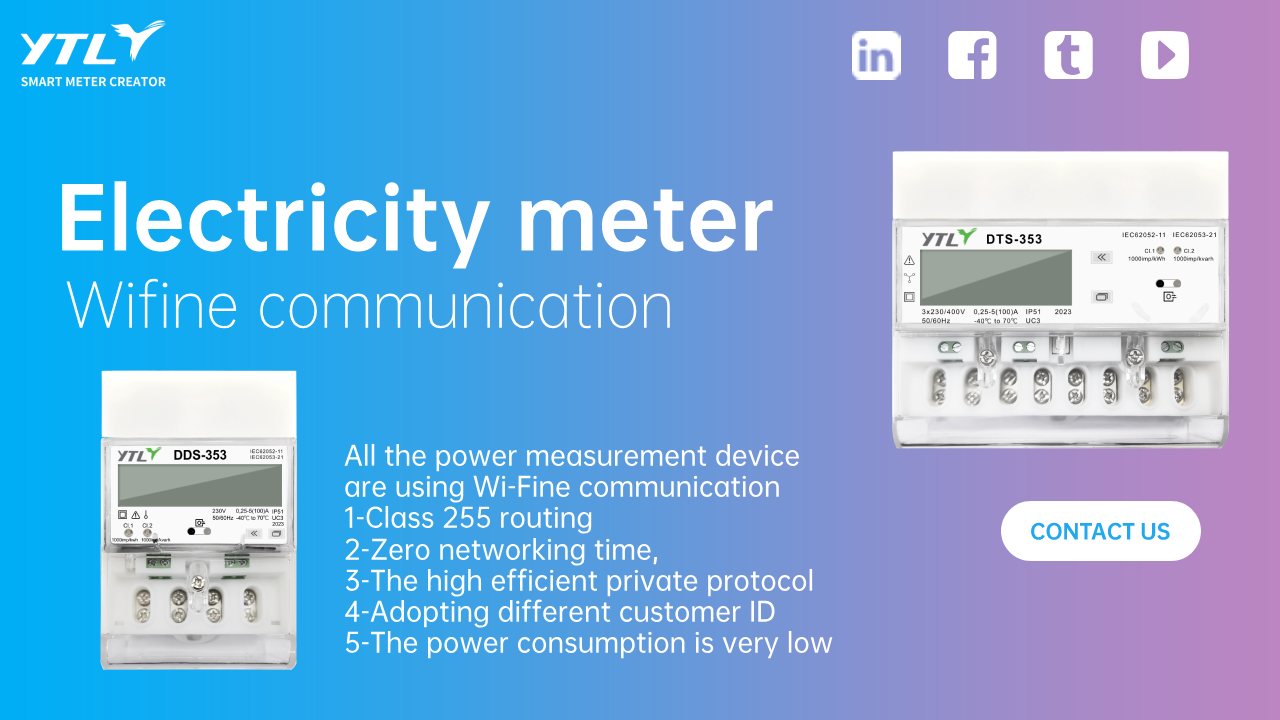DC meters and AC meters have significant differences in several aspects, primarily in the nature of the measured current, working principles, application scenarios, structural characteristics, error characteristics, and pricing and maintenance. Below is a detailed explanation of the differences between the two:
1.Nature of Measured Current
DC Meter: Primarily used for measuring energy consumption in DC circuits, where the current direction is constant. It focuses on the magnitude and time of the current, without regard for changes in current direction.
AC Meter: Used for measuring energy consumption in AC circuits, where the current direction continually changes. It needs to consider the phase difference between voltage and current, as well as their amplitudes, to calculate active power.

2.Working Principle
DC Meter: Based on the working principle of an ammeter, it calculates current strength by measuring the voltage drop across a resistor. In a DC meter, current flows through a fixed resistor, generating a fixed voltage drop proportional to the current strength. Therefore, by measuring the voltage drop, the current strength can be determined.
AC Meter: Based on the principle of electromagnetic induction, it calculates active power by measuring the phase difference and amplitudes of voltage and current. In an AC meter, the phase difference and amplitudes are converted into rotational torque through electromagnetic induction, driving an aluminum disk to rotate. By measuring the speed and direction of the disk's rotation, active power can be calculated.
3.Application Scenarios
DC Meter: Commonly used in fields such as DC screens, communication base stations, and photovoltaic power generation, as well as for measuring energy consumption in DC power sources like batteries and solar panels.
AC Meter: Widely used in residential homes, factories, and commercial establishments to measure energy consumption in household appliances and industrial equipment powered by AC.

4.Structural Characteristics
DC Meter: Typically has a smaller dial marked with scale lines and corresponding readings. It usually features a red pointer indicating the current strength.
AC Meter: Generally has a larger dial marked with scale lines and corresponding readings. It often features a rotating aluminum disk that indicates current power consumption.
5.Error Characteristics
DC Meter: The error characteristics are relatively stable since its measurement principle is based on the direct measurement of voltage drop across a resistor. Thus, the errors in a DC meter are typically determined by the errors in the resistor and voltmeter.
AC Meter: Error characteristics are influenced by various factors, including the amplitudes of voltage and current, phase difference, and circuit impedance. Therefore, the errors in AC meters are usually larger than those in DC meters and may be affected by nonlinear factors.
6.Pricing and Maintenance
DC Meter: Generally lower in price, with a simple structure that is easy to maintain. Its straightforward measurement principle ensures stability during use, resulting in lower maintenance costs.
AC Meter: Typically more expensive with a complex structure that requires regular calibration and maintenance. Due to the complexity of its measurement principle and the need to consider multiple factors, higher technical expertise is required for installation, debugging, and maintenance.

Although DC meters and AC meters differ in their measurement principles and logic, they share many common features in their additional functionalities. For instance, both can include data acquisition, remote communication, and event alarms to meet the intelligent demands of modern power systems.
When deciding which type of meter to use, considerations should be based on specific application scenarios and measurement needs. As power systems continue to evolve and their level of intelligence improves, the functions and performance of both DC and AC meters will also enhance and refine.

 English
English 简体中文
简体中文






.png?imageView2/2/w/500/h/500/format/png/q/100)







